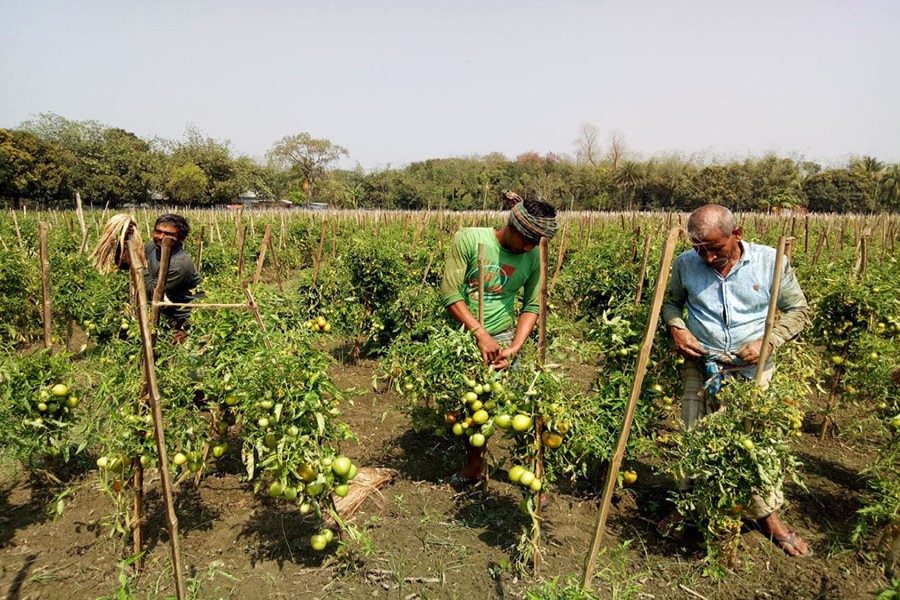Farmer Bipul Ghosh in the Shibrampur area of Macchar union of Faridpur Sadar has achieved a big success by growing tomato of sixteen varieties on about six acres of land.
Bipul Ghosh said he has grown in his field Nobel, Mintu Super, Ispahani Deepali, Huge Plus, Chameli, Bahubali, Bijli, Rajababu, Sumo and F One Super varieties of tomato.
The farmer said Ispahani Dipali variety is big in size. Tomato of that variety has weight ranging from 500 grams to 600 grams per piece.
In the Shivampur area, huge tomato farming has been noticed in the Bipul Agro Farm owned by Bipul Ghosh.
Some 16 varieties of tomatoes have been cultivated in 54 plots. Trees have fallen down on the weight of fruits. Workers are straightening trees with thick bamboo sticks. Red tomatoes hang on many trees.
There are an estimated 44,000 tomato plants in 54 plots. The manager of the farm, Bappi Ghosh (41), said that on average, 32 carat tomatoes are sold every day. One carat is holding 26 kgs of tomatoes. On average, 832 kgs of tomato are being sold everyday.
Tomato seedlings are planted in the first week of Bengali month Aghrayan and from the last week of Kartik. Tomato marketing started from the last week of February. The sale will continue until the month of Baisakh.
In one bigha of land there are 2,800 plants. He expects to produce around 10 kgs of tomatoes per tree. As a result, 25,000 kgs of tomato will be produced per bigha of land. On average, it is possible to sell tomatoes worth Tk 0.42 million per bigha if selling price is Tk 15 per kg. He spends Tk 40,000 to cultivate one Bigha of land. After exclusion production cost, the profit of Bipul Ghosh from each bigha land would be Tk .38 million.
Kartik Chandra Chakraborty, deputy director of the Faridpur DAE, said Bipul Ghosh's agro farm is enriched with various national vegetables. He is doing a good job.
Bipul Ghosh said he has been involved in agricultural work for 12 years. Being associated with agriculture for a long time, he feels that if soil testing is done in every union and if the supervisors (Block Supervisor) of the DAE are properly monitored, then it is possible to make periodic changes in the agricultural production of the country.


